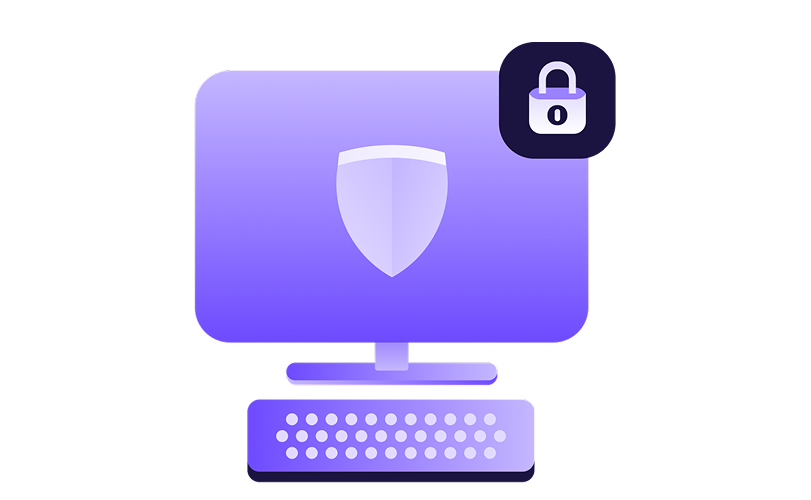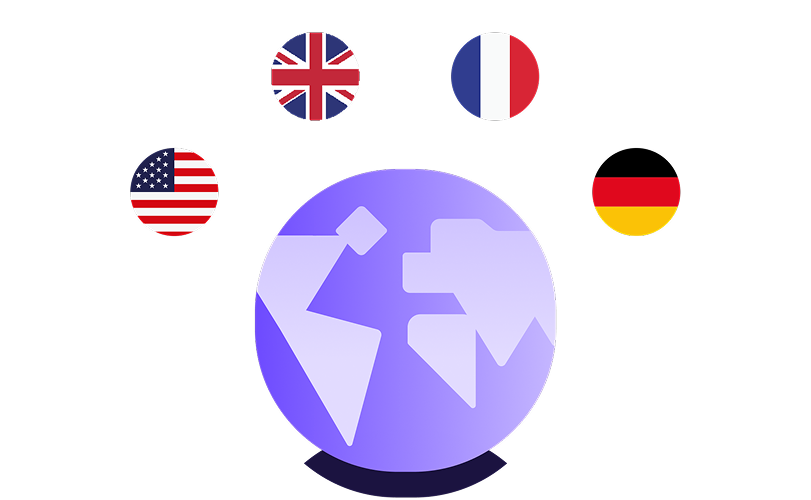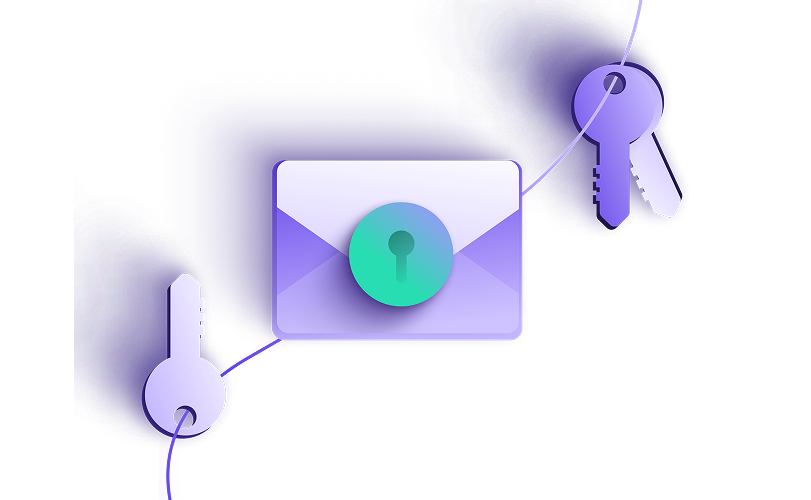Qu'est-ce que le chiffrement zéro accès ?
Le chiffrement zéro accès protège vos données stockées dans le cloud d'une manière qui empêche le fournisseur de services et tout tiers d'accéder à leur contenu.
Découvrez comment il fonctionne, en quoi il diffère du chiffrement de bout en bout et comment il peut protéger vos données des annonceurs, des courtiers en données, des systèmes d'IA, des accès non autorisés, des fuites de données ou des demandes gouvernementales.
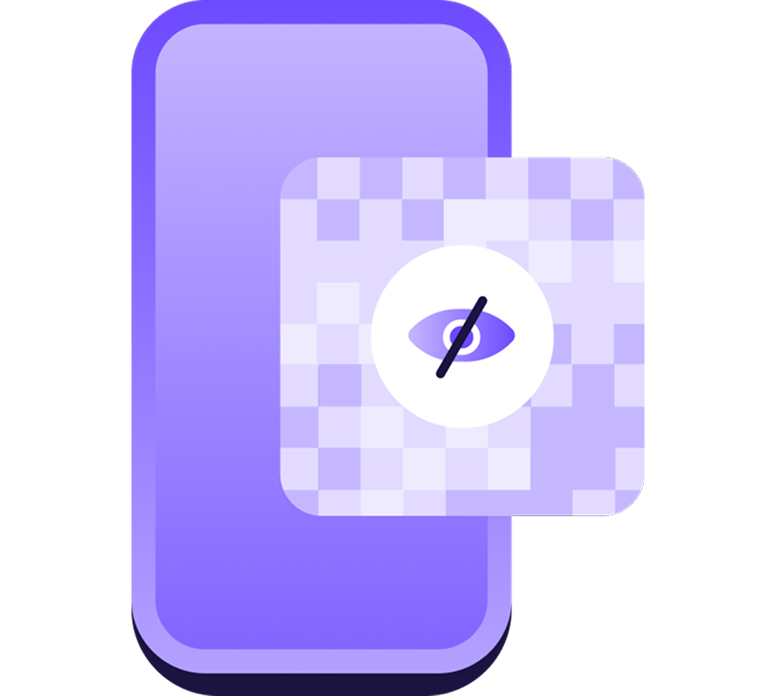
Comment fonctionne le chiffrement zéro accès ?
Le chiffrement zéro accès repose sur la cryptographie asymétrique (clé publique), où les données sont chiffrées avec votre clé publique et ne peuvent être déchiffrées qu'à l'aide de votre clé privée, que vous êtes le seul à contrôler.
Comme le serveur ne possède pas votre clé privée, le fournisseur de services ne peut pas lire vos données stockées. Lorsque vous y accédez, le contenu chiffré est récupéré et déchiffré localement sur votre appareil.
Par exemple, Lumo, notre assistant IA privé(nouvelle fenêtre), utilise le chiffrement zéro accès : vos conversations sont chiffrées sur votre appareil avant d'être stockées sur les serveurs de Proton, et vous seul pouvez les déchiffrer. Proton stocke les données chiffrées mais ne peut ni y accéder ni les récupérer.
Quelle est la différence entre le chiffrement zéro accès et le chiffrement de bout en bout ?
Le chiffrement zéro accès protège les données après qu'elles ont atteint le service en les chiffrant de sorte que seul l'utilisateur puisse les déchiffrer, même si le service peut brièvement accéder aux données avant le chiffrement.
Le chiffrement de bout en bout (E2EE) protège les données avant même qu'elles n'atteignent le service en les chiffrant sur l'appareil de l'expéditeur, garantissant que seuls l'expéditeur et le destinataire prévu peuvent les lire.
Bien que les deux empêchent l'accès par des tiers et protègent contre les fuites de données, l'E2EE offre de plus fortes garanties en matière de respect de la vie privée, car le fournisseur de services ne voit jamais les données non chiffrées à aucun moment.
Par exemple, lorsqu'un message est envoyé depuis Gmail vers Proton Mail, les serveurs de Proton peuvent brièvement lire le message car Gmail n'utilise pas le chiffrement de bout en bout. Proton chiffre ensuite le message à l'aide de la clé publique du destinataire, après quoi seul le destinataire peut le déchiffrer et Proton n'y a plus accès.
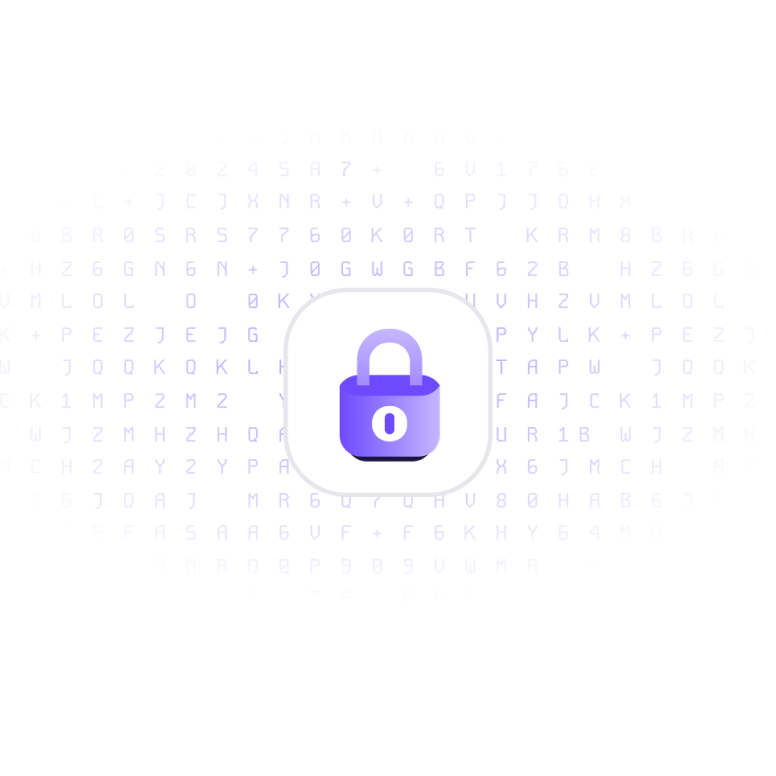
Pourquoi avez-vous besoin du chiffrement zéro accès ?
La plupart des grandes entreprises technologiques, comme Google et Yahoo, n’utilisent pas le chiffrement zéro accès. Cela signifie qu'ils peuvent lire vos messages, fichiers et autres données une fois stockés sur leurs serveurs. Voici comment le chiffrement zéro accès peut protéger vos données :
Vous êtes protégé contre les publicités et le profilage
Les géants de la tech soutiennent leurs modèles commerciaux basés sur la publicité en vendant vos informations à des courtiers en données et à des spécialistes du marketing qui établissent des profils détaillés de vos habitudes en ligne. Avec le chiffrement zéro accès, le fournisseur de services ne peut ni voir, ni traiter, ni partager vos données avec des tiers, car l'accès à vos données est techniquement impossible. Vous gardez le contrôle de vos informations personnelles à tout moment.
Les fuites de données n'exposeront pas vos données
Si les serveurs du fournisseur de services sont victimes d'une faille, le chiffrement zéro accès garantit que les bases de données volées ne sont rien de plus que du texte chiffré illisible. Même si des attaquants obtiennent un accès complet aux serveurs ou aux sauvegardes, vos données restent protégées.
Vous ne pouvez pas être contraint de renoncer au respect de votre vie privée
En cas de demandes gouvernementales ou juridiques, un service fournissant le chiffrement zéro accès par défaut (comme Proton) peut protéger votre vie privée car il n'a aucune donnée à remettre en premier lieu. Cette protection s'applique quelles que soient les lois actuelles, les futures évolutions juridiques ou le climat politique.
Prenez le contrôle de vos données
Proton a été conçu pour protéger vos données dès le départ. Avec le chiffrement zéro accès, des applications open source et des audits indépendants, vos informations vous appartiennent.
Les messages stockés dans Proton Mail sont protégés par un chiffrement zéro accès, nous ne pouvons donc pas lire le contenu de vos messages ou vos pièces jointes une fois qu'ils sont chiffrés.
Si les messages ne sont pas chiffrés de bout en bout pendant le transit, ils sont chiffrés après accusé de réception, de sorte que vous seul puissiez y accéder.
Les événements du calendrier que vous stockez sont protégés par le chiffrement zéro accès, y compris les titres, les descriptions, les emplacements et les listes d'invités.
Même lorsque vous partagez votre emploi du temps ou envoyez une invitation, personne d'autre (pas même Proton) ne peut voir à qui cela est destiné.
Les mots de passe, noms d’utilisateur, adresses web, notes, cartes de paiement, informations d'identité et autres données que vous stockez sont protégés par le chiffrement zéro accès.
Lorsque vous partagez des coffres-forts, le contenu et les liens partagés sont protégés, de sorte que seules les personnes que vous invitez peuvent voir ce qu'il y a à l'intérieur.
Ce que vous stockez et partagez dans l'espace de stockage cloud est protégé par le chiffrement zéro accès, y compris le contenu des fichiers, les noms de fichiers, les noms de dossiers, les aperçus de vignettes et les liens partagés.
Seuls vous et les personnes avec qui vous choisissez de partager pouvez accéder à vos fichiers — pas même Proton ne peut les voir.
En savoir plus sur le chiffrement
